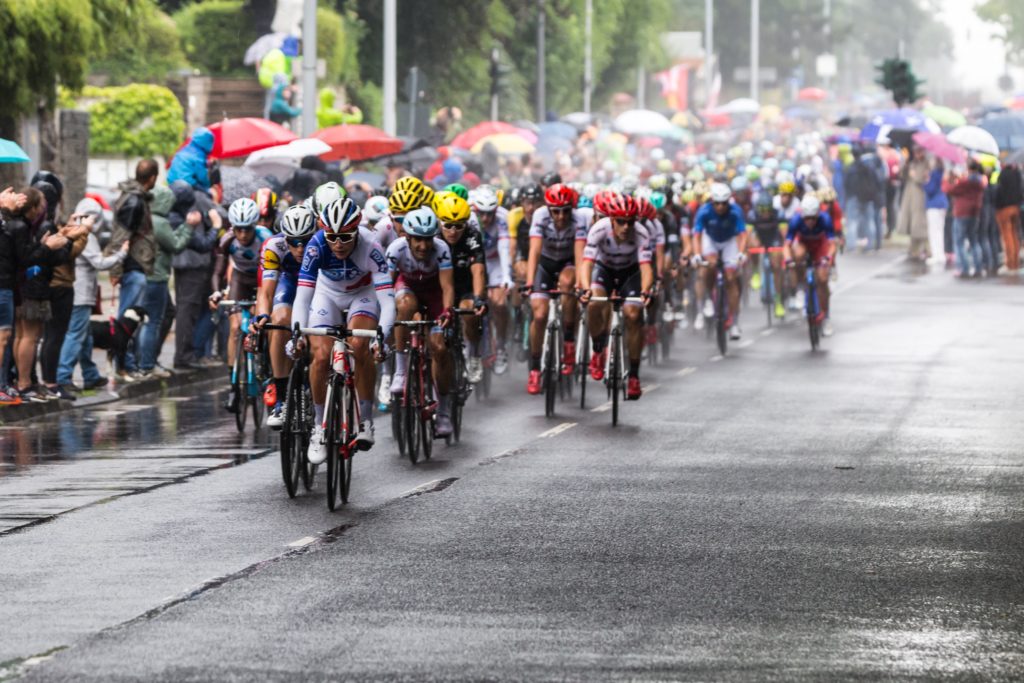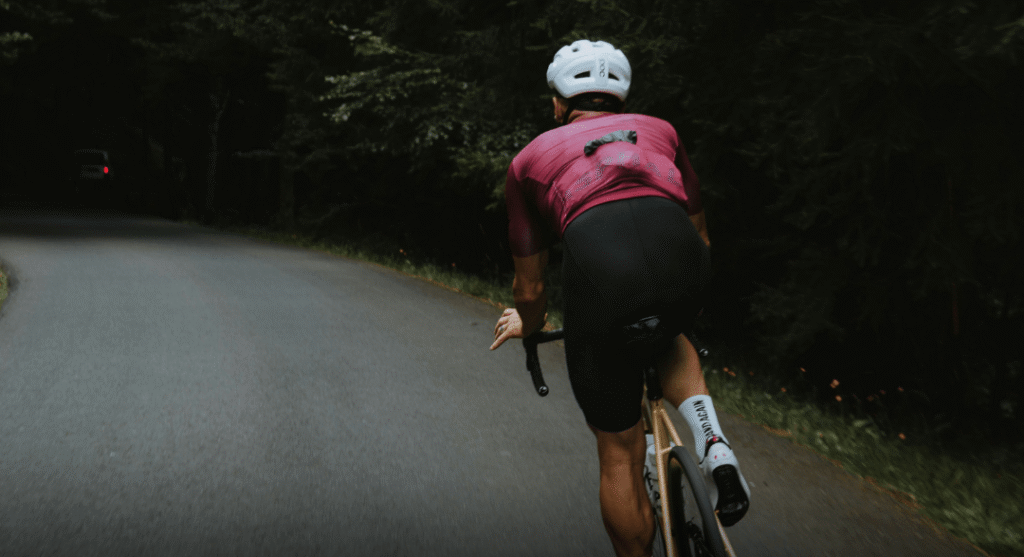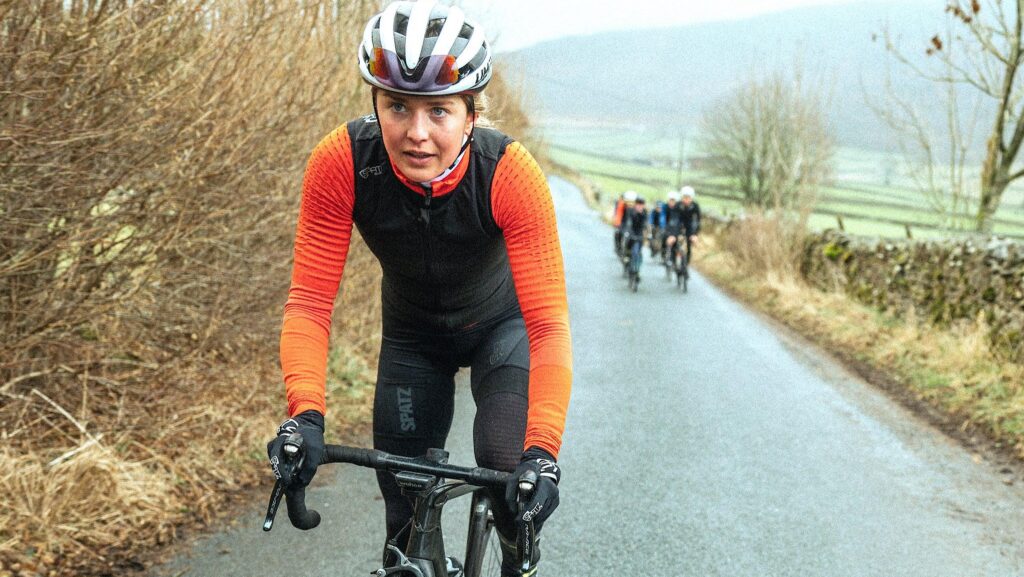Personalised sports nutrition apps are tailoring the best in sports nutrition to progress your performance in a fast-growing segment of the £1.5 billion+ global personalised nutrition market.
—
First, there was just plain old food; then the field of food nutrition was born; then there was sports nutrition as food scientists delved ever deeper into the effects of foods, nutrients and supplements on sporting performance.
Why have a salami and cheese baguette with a can of full-fat fizzy pop mid-race when you could have a 1:0.8 ratioed maltodextrin-to-fructose bar, washed down with a ketone ester shot that certain clinical studies will have shown can significantly boost your on-bike performance?
Sure, the baguette might taste better, but you want to win don’t you? Or at least be your best bike rider.
Ex-pros like Chris Horner might claim he won the 2013 Vuelta a España whilst sloping off to eat McDonald’s every evening but that was a truly mutant ride from the then 41-year-old. A sporting and nutritional outlier for the ages.
‘Self-improving machinery’: Level up your nutrition game
But knowing which kind of sports nutrition is best for you, with your particular physiology, your athletic level, your aims and targeted events, can be tricky.
Caffeine, L-carnitine, guarana, peptides, B vitamins, zinc, green tea, plant proteins, animal proteins, probiotics, prebiotics, synbiotics, microbiome modulation, glucose monitoring, carbohydrate forms…It’s a big list and it never sleeps.
When to take them. In what combination. In what dosage. In what form.
It’s confusing – especially if you are not a pro cyclist with a full-time human nutritionist to guide – but an ever-expanding array of typically AI-driven personalised sports nutrition services is stepping up. Might as well deepen your cyborgisation by letting a machine control your sporting nutrition. So 2021!
“We have thousands of interactions between nutrients, diseases, medications, allergies – we reference about 15,000 studies – really everything that is known,” says Philipp Merk, co-founder and managing director at two-year-old German personalized nutrition firm and Technical University of Munich spin-off, Loewi.
“We have algorithms calculating the individual dose for each nutrient and with each blood test that we conduct we use machine learning to build a mathematical model of their metabolism.
“We basically have a curve where we know which dosage we need to achieve which blood value. The cool thing is with each customer that comes through the system our model gets better and better. It’s like self-improving machinery.”
Merk says sports nutrition accounts for about 40% of its business focused on supplement and food recommendations that typically cost users about £60 a month.
Energising ‘Everyday Elites’
In the UK, Chelsea FC/Chelsea Digital Ventures’ personalised sports nutrition spin-off, Blue Fuel, is finding popularity in the cycling community with its questionnaire-led tailored nutritional solutions that include caffeine gummies, protein bars, recovery powders and drinks and recipes adapted to athletes’ schedules.
“Our core market is what you would call ‘everyday elites,’” says Blue Fuel performance nutritionist and founder of TM Personalised Performance Nutrition, Ted Munson.
“They’re buying the best gear; they’re training as if they were pros but obviously they are not at the elite level. But they want to push toward that semi-professional level.”
From Team DSM to you: ‘difference-making advantages’
In that lane of pro-level trickle down, Loewi has linked with the German-registered, Dutch-based pro cycling outfit, Team DSM, to provide blood sample-based biomarker analysis for the team’s MixFit personalised nutrition platform, including at this year’s Tour de France.
“We have been recommending food and supplements for the riders based on this analysis,” Merk says. “And building a database.”
“We get the riders’ performance and training data which really helps evaluate the impacts of our system.”
Team DSM nutrition expert, Joline Versteegen, says MixFit has taken rider nutrition to new levels.
“The algorithms help us in guaranteeing that their intake is exactly on point, even at a detailed micronutrient level,” she says, handing riders, “difference-making advantages on performance capacity, both directly and indirectly.”
Particular nutrients the team has been scrutinising include peptides and omega-3s.

A wide web of sports nutrition apps
The list of apps in the area is growing fast and diversifying from the likes of sports nutrition-focused 4Gold, CORlife, Prevess and Elo Health to on-bike glucose monitoring like Supersapiens to gene testing-focused services like DNAFit.
The sports nutritionist consensus says the genetic end of the pool is promising but still nascent not to mention facing tighter regulation after the British government’s Science and Technology Committee in June recommended pre-authorisation market restrictions and tougher testing standards for direct-to-consumer genomic tests.
“For stand-alone DNA tests, it will take at least a couple of years,” says Merk. “But that’s something we would like to do: Correlate all these data streams.”
Keep it super-simple
Nick Morgan, former Ironman and founder of UK-based sports nutrition consultancy, Nutrition Integrated, says personalising sports nutrition can be potent but must remain accessible.
“Personalised nutrition has been around for years because coaches and nutritionists have always been personalising nutrition,” Morgan asserts. “So technology is the enabler to make it more accessible to more people by reducing costs. It’s the future.”
“But companies need to be clear about not being too clever because it needs to be super-simple for people to use it.”
For home insurance built for cyclists – check out Pedal Cover here!




